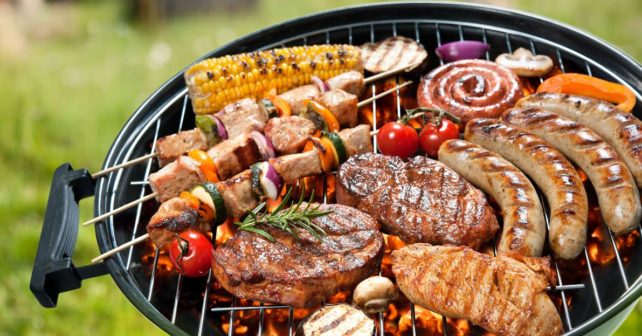
The Fourth of July is almost here and that means parades, fireworks and outdoor cooking! Whether it’s barbecue, grilling, or picnics, nearly 80% of Americans will be hosting or attending some type of outdoor cookout. However, while grilling outdoors all day long is one of the best parts of Fourth of July parties, the warm weather can bring an increased risk of foodborne illness, as bacteria in food multiply faster at temperatures between 40°F and 140°F.
Stop Foodborne Illness, a national, nonprofit, public health organization dedicated to preventing illness and death from foodborne pathogens, wants you to be prepared for not only a fun, food-safe holiday, but for a whole summer of grilling. According to Forbes, 75% of U.S. adults own a grill or smoker and 63% of them use their grill or smoker year-round, while hard core grill masters use them at least once a month through winter.
Whatever your grilling season of choice, brush up on safety practices and tips, from preparation to post-party clean up, before you head outside.
Before You Cook
Food safety starts at the grocery store. Be sure to keep raw meat as far away as possible from other food items in the cart. When bagging items, keep meat juices from dripping on produce and other groceries by wrapping meats and poultry in separate plastic bags. Keep in mind that meat, poultry, and other perishable items should be the last to go into your grocery cart and the first to go in your fridge. Bring a cooler with ice when transporting raw meat and poultry home, especially on hot days over 90°F.
During Preparation
When preparing meat for the grill, make two batches of sauce, one in which to marinate raw meat and another to baste cooked meat. Do not place cooked meat in the sauce that was used to marinate the raw meat. Remember to always marinate food in the fridge. Grill meat to a safe internal temperature. Using a meat thermometer is the only way to know if meat is fully cooked—don’t guess! Check the temperature at the thickest part of the meat, and sanitize the point in between readings. Be sure to use separate utensils and dishes for raw and cooked food. Do not serve cooked food on platters that were used to transport raw food to the grill unless they have been washed thoroughly with soap and hot water. The same is true for spatulas, tongs, and other utensils. Here are safe internal temperatures to consider when grilling:
- Burgers/ground meat (except poultry): 160°F (72°C)
- Chicken and Poultry (including ground, like turkey burgers): 165°F (74°C)
- Whole cuts of meat including pork: 145°F (63°C), with a 3-minute rest time before serving
- Fish and Shellfish: 145°F (63°C)
After the Meal
When the temperature outside is 90°F (or higher), perishable foods not eaten within one hour should be thrown away. On cooler (under 90°F) days, perishable foods not eaten within two hours should be tossed out. Promptly refrigerate leftovers in shallow containers and go enjoy the fireworks show.








